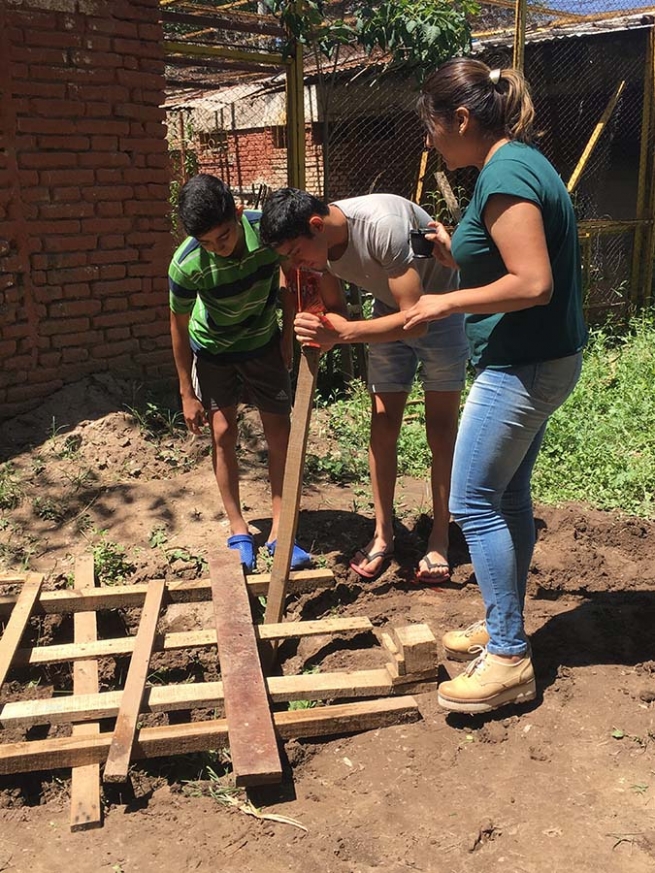ARGENTINA: Don Bosco Oratory will launch new virtual environmental training to help families start gardens at home

(MissionNewswire) The Don Bosco Oratory in Santiago del Estero, Argentina, continues its “Young farmers, towards responsible and sustainable participation” project, which was launched in 2018. The project provides basic training in environmental subjects and includes workshops, separate waste collection and the creation of agro-ecological gardens.
Pope Francis’ Encyclical Laudato Sì underlines the importance of education and training capable of shaping a lifestyle and fostering environmental responsibility. The foundation of environmental education should be provided early to impact future generations.
The first objective of the project was encouraging the environmental commitment of youth. Thanks to the contribution of JuWe Vereinigung Don Bosco Werk in Switzerland, multiple initiatives have been developed over almost two years to help achieve this.
Although some workshops have been suspended during the coronavirus lockdown period, workshops have also been developed. These include courses in autochthonous forest and forest nursery, management of native forests and forests, agro-ecological gardens, and education and environmental management.
In 2019, the Don Bosco Oratory created an agro-ecological vegetable garden and a separate collection and recycling system for waste in the oratory building. Given how successful the program has been to date, staff with the oratory are working to bring project initiatives to the community.
A new project set to launch will provide a virtual environmental program to help teach families and children to create their own gardens at home. The Don Bosco Oratory is working on gathering seeds to be planted and obtaining the permits necessary to meet official regulations. Salesian staff members are also assessing local climate conditions where youth live so that their horticultural activity can be carried out with success.
“This is a wonderful time for families to be focused on learning skills to plant their own gardens and harvest their own food,” said Father Gus Baek, director of Salesian Missions, the U.S. development arm of the Salesians of Don Bosco. “This new project will have a positive impact on food assistance for the families and teach responsibility for youth.”
Salesian programs across Argentina are primarily focused on education. Salesian primary and secondary education in the country prepares youth for technical, vocational or university studies. Other programs help meet the basic needs of poor youth and their families by providing shelter, proper nutrition and medical care, helping youth to engage in their education and have hope for the future.
More than a quarter of the people in Argentina live in conditions of poverty with no formal employment and poor-quality education, according to the World Bank. The country’s high school dropout rate is close to 37 percent and youth account for a third of those unemployed. Almost 12 percent of children aged 5 to 17 are working instead of being in school and 20 percent need government assistance. Many face malnutrition, a lack of clean water and sewage, and inadequate housing.
###
Sources:
ANS Photo (usage permissions and guidelines must be requested from ANS)
ANS – Argentina – Home vegetable gardens: to continue taking care of the “common home”
Salesian Missions – Argentina
World Bank – Argentina





